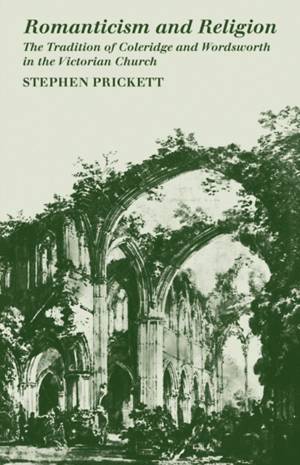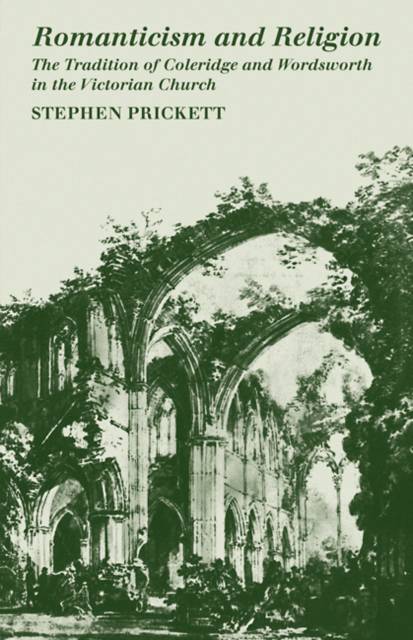
Je cadeautjes zeker op tijd in huis hebben voor de feestdagen? Kom langs in onze winkels en vind het perfecte geschenk!
- Afhalen na 1 uur in een winkel met voorraad
- Gratis thuislevering in België vanaf € 30
- Ruim aanbod met 7 miljoen producten
Je cadeautjes zeker op tijd in huis hebben voor de feestdagen? Kom langs in onze winkels en vind het perfecte geschenk!
- Afhalen na 1 uur in een winkel met voorraad
- Gratis thuislevering in België vanaf € 30
- Ruim aanbod met 7 miljoen producten
Zoeken
Romanticism and Religion
The Tradition of Coleridge and Wordsworth in the Victorian Church
Stephen Prickett, Prickett Stephen
Paperback | Engels
€ 76,45
+ 152 punten
Uitvoering
Omschrijving
Modern scholarship has tended to separate literature and theology. Yet it is impossible to understand the ideas of such Victorian theologians as Hare and Maurice, Keble and Newman without reference to contemporary literary criticism - just as it is impossible to understand criticism of the period (and the sensibility it implies) isolated from its theology. This book is an attempt to reinterpret a whole theological tradition in the light of its members' views on language and poetry, and associated ideas of imagination, myth and symbol. Dr Prickett argues that Coleridge and Wordsworth began a theological revolution by reintroducing to the Anglican Church a mode of thinking that had become submerged, or died out. "Their 'organic' aesthetics, with roots both in England and Germany, carried with them a theory of symbolism and of the unconscious, which, while originally derived from theology, provided an independent and parallel tradition to contemporary 'Paleyite' apologetic. From them Maurice, Keble and Newman were able to draw the conception of an 'idea' as living and creative, and of the Church itself as 'poetic'.
Specificaties
Betrokkenen
- Auteur(s):
- Uitgeverij:
Inhoud
- Aantal bladzijden:
- 304
- Taal:
- Engels
Eigenschappen
- Productcode (EAN):
- 9780521102179
- Verschijningsdatum:
- 18/12/2008
- Uitvoering:
- Paperback
- Formaat:
- Trade paperback (VS)
- Afmetingen:
- 140 mm x 216 mm
- Gewicht:
- 385 g

Alleen bij Standaard Boekhandel
+ 152 punten op je klantenkaart van Standaard Boekhandel
Beoordelingen
We publiceren alleen reviews die voldoen aan de voorwaarden voor reviews. Bekijk onze voorwaarden voor reviews.









